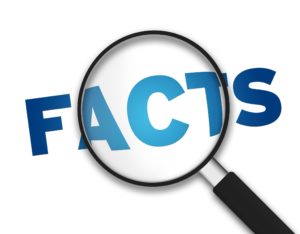3 Important Multi-State Tax Facts SaaS Companies Need to Know

Last week we discussed various multi-state tax issues software companies often overlook. This week we look at another industry that often misses sales and use tax ramifications on their sales: Software-as-a-Service (SaaS). Many think that because it’s not a tangible product or even clearly defined as a service (at least according to traditional definitions), these companies don’t need to worry about state sales tax. Keep reading to find out why this could be a costly mistake.
3 Multi-State Tax Facts SaaS Companies Need to Know About
Fact 1: SaaS companies regularly establish nexus. Just as every business that engages in various activities across state lines, SaaS companies need to be aware of how they may be establishing a taxable presence, or nexus, across the country. For SaaS companies specifically, this is often done in a few ways:
- Sending employees or third-party contractors to customers in other states as a “traveling salesforce.”
- Renting server space in various states across the country.
- Housing servers in more than one state.
3 Important Multi-State Tax Facts Software Companies Need to Know

What do software companies need to know about when it comes to multi-state tax issues? Last year we shared an overview of nuances many in the field don’t think about, but need to consider when it comes to their organization. As a large portion of the technology industry, it is important that software companies are aware of how matters such as nexus, as well as individual state sales tax and income tax laws, may affect them.
3 Multi-State Tax Facts for Software Companies
Fact 1: Even if you don’t create and sell a physical product, your company may still have "nexus" (or physical presence) in multiple states, making you responsible for following their state’s tax laws (both for income tax and sales tax). We often ask questions like these to determine if a software client may have nexus in multiple states:
- Do your employees travel to other states for anything related to sales, including software installation and training?
- Does your business either have servers or rent server space outside of your home state?
- Does your company have or rent property in multiple states?
FOCUS ON CALIFORNIA

This month, we travel back to the mainland (and the home state of Miles Consulting Group) to the 3rd largest state in the country and the 6th largest economy in the world- the Golden State of California! With its sunny and dry coastal climate year round (except for January 2017!) and easy access to the ocean and mountains, California has always been seen as an ideal resort destination. In the 1960s, popular music groups such as The Beach Boys promoted the image of Californians as laid-back, tanned beach-goers - which, of course we all are!
California is home to the second most populous city in the United States- Los Angeles, which is home to the Hollywood entertainment industry. San Francisco, 400 miles to the north, is where you will find the Golden Gate Bridge, Alcatraz Island and cable cars.
Multistate Tax: The Top 3 State Tax Issues for 2017

Happy New Year!
I always like the fresh feeling of a New Year – a clean desk, a new calendar, and a relaxed and grateful frame of mind from coming off of the holidays. I’m particularly excited about 2017 because it’s a year of special milestones and anniversaries for me – both personally and professionally, and I’m a big believer in celebrating those special occasions. I’m not sure exactly what the year will bring, but I have big expectations for it.
Cheers! An Update on the Taxability of Beer

Cheers! The start of the New Year is just around the corner. How are you going to celebrate? Maybe with a beer or a glass of champagne? Well, did you ever think about how that beer or champagne came to be? Or how it came to be taxed? In this article we discuss some of the implications on the taxing of beer and wine and a change lurking in the New Year.
All breweries may receive some help from Uncle Sam in the New Year. A new federal law will lower excise taxes on both craft and macro brewers. So both beer makers and beer drinkers may soon find a lower bar tab. The rapid growth of the beer industry has created struggles for regulators who are responsible for taxing and regulating beer and other alcoholic beverages.
FOCUS ON HAWAII

Aloha! This month we travel across the ocean to the island paradise of Hawaii. In the state, you can attend a luau to experience true Hawaiian culture, relax on the beach or hike in one of the many tropical forests or mountains.
Hawaii is unique because it the only state made up of part of the volcanic Hawaiian archipelago, which consists of hundreds of islands spread over 1,500 miles. At the southeastern end of the archipelago are eight islands known as the state of Hawaii. They are: Niihau, Kauai, Oahu, Molokai, Lanai, Kahoolawe, Maui and Hawaii.
Due to its central location in the Pacific Ocean and its 19th-century labor migration, Hawaii’s culture is strongly influenced by North American and Asian cultures, in addition to its indigenous Hawaiian culture. This is exhibited by the many customs and food cuisines that Hawaii has to offer. For example, it is customary to bring a small gift for one’s host (i.e., a dessert). Many Hawaiian plates have been influenced by Polynesian, Asian and American foods as well.
Rainmaking – Consider Your Pricing
A few weeks ago, I posted here about putting my Jumpstart Your Rainmaking program on sale. It was Black  Friday and I wanted to participate! (Of course, most of the time, we think of “on sale” as pertaining to tangible goods.) How many of us who sell professional services would ever think to put them “on sale”? It’s not something I had ever considered before. But let’s imagine it for a minute…how the billboard ads might read….
Friday and I wanted to participate! (Of course, most of the time, we think of “on sale” as pertaining to tangible goods.) How many of us who sell professional services would ever think to put them “on sale”? It’s not something I had ever considered before. But let’s imagine it for a minute…how the billboard ads might read….
Multi-state sales tax consulting services…”Call to sign up for a multi-state nexus review in the next 24 hours, and I’ll cut my fees by 25%”
IT support: “For December only, we’ll give you all the support for half the price!”
Realtor: “Today only – Offer on your house? We’ll cut the commission by 15%”
Not likely. Right? So, I’m not advocating that we’d ever really be in the business of putting our services “on sale”.
Washington's Minimum Wage Hike: What Do You Need To Know?

Last month’s election results included more than determining the next president and allowing recreational marijuana in California; states across the country also passed legislation changing employment laws – specifically minimum wage and sick pay. I thought it would be interesting to take a look at one of these states (one of our neighbors to the north): Washington.
Case Study: Minimum Wage & Paid Sick Leave in Washington State
Washington isn’t new to interesting legislation. Last year they passed a few statutes regarding nexus in the state and a five-point internet sales tax solution. What about the recent election? The state passed a law regarding minimum wage and paid sick leave.
Although Washington State’s minimum wage was already the 8th highest in the country and more than $2.00 above the federal minimum wage, voters passed an initiative that will significantly affect employees’ wages.
Start-up Companies Can Now Benefit from the R&D Tax Credit
If you’re a start-up company with annual gross receipts of less than $5 million, you can now apply up to $250,000 of your R&D credit against your payroll tax liability.

The federal R&D tax credit is a dollar-for-dollar reduction of federal income tax liability for qualified expenditures incident to the development or improvement of a product, process, software, formula or invention. It was recently made permanent by The Protecting Americans from Tax Hikes Act of 2015 (“PATH” Act).
Previously, a company had to actually generate a profit and taxable income to utilize the R&D tax credit. Now the PATH Act allows start-up companies to utilize the credit against their payroll taxes, if the companies perform “qualified research”.
Rainmaking - It's On Sale

Happy Day After Thanksgiving to you and yours! This blog is posting on Black Friday. Why do I have time to write a blog today? Because I’m NOT one of the 137 million Americans who will begin their Christmas shopping – either in stores or online this weekend. Yes, wholly 40% of Americans shop this weekend. But it’s not a tradition that I partake in. For all of you that DO – you’ll certainly be in good company. Enjoy and charge safely out there!
But the thought of Black Friday got me thinking about the concept of offering special deals in general. Should service providers like CPAs, attorneys and other professionals ever offer specials? I’m in the process of offering one right now. Not in my multistate business, but on the Rainmaking side of the house. And I’m still trying to decide if it’s a good idea.
Here’s the situation:
The multistate side of Miles Consulting Group has been my main source of revenue for almost 15 years. Last year, in addition to multistate, I launched a speaking and educational program called Jumpstart Your Rainmaking. It’s all about helping professionals who need to sell their services. I use my 20+ years of experience in selling consulting services to train colleagues on developing their sales mindset, identifying their perfect target client, selecting the best direct and indirect marketing strategies to get in front of that audience, putting together a viable written plan, and then keeping themselves accountable. The program is delivered in a variety of ways – live speaking presentations, customized training for CPA firms, and a three part webinar series. Each delivery format is a little different, and offers training to people in ways that make sense to them.
Right now, we are preparing to offer the three part webinar series – a three week commitment (an hour per week) in December. Webinar participants will benefit from the items mentioned above, and will also learn how to develop their 2017 revenue generation plan. Before January, our program participants will have an easy to follow, measurable plan which will help them generate revenue in their pipeline next year.Read more


















